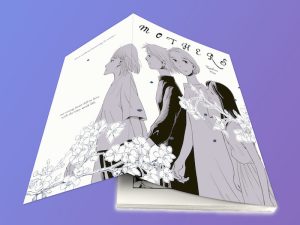
Written and illustrated by Kusahara Umi.
Translated by Jocelyne Allen.
Lettered by Tim Sun.
Edited by emuh ruh.
Published by Glacier Bay Books.
Mothers is magic. A comics grimoire, where you find death among the dreams of flowers. Stories generative and stories on entropy, bound in bittersweet tears. Oh, comics! Kusahara Umi has self-released these short stories for years in the Japanese underground zine scene, and they have that intimate immediacy that one would expect from an alternate to mainstream manga. Glacier Bay Books’ collected English volume is a chance to experience an analogue to the American alternative scene down to the comely micro-press print edition and the comic’s mixture of the twee and the traumatic. Mothers is still informed by the history of manga even if Umi’s work stands apart; it’s a blooming of what comes next.
Call it magical realism. A setting that starts in the reader’s world and departs into fiction. Umi will do that, bear a tragic moment away on literal wings. Mothers is also paranormal, the unreal is present alongside the everyday in casual coexistence. Sometimes the magic is just behind closed eyes. The blood pushes up into your cheeks, the hairs on your neck stand at attention, but only inside do the floors fall away. All of it, the scope of stories told in Mothers, are comics expressing what is inside.
Illustration, particularly sequential art, is a medium perfectly suited for wandering seamlessly between multiple perspectives. Comics can tell an external story, show an internal experience, it can marry one to the other so that the world itself is surreal. The allegorical becomes the literal. The cartoonist has the same freedom from narrative restraint as the novelist. And the zine-like magic in Mothers taps into a storytelling fluidity supported by visual minimalism. Comics at its most raw, most bare, its richest, its essence.
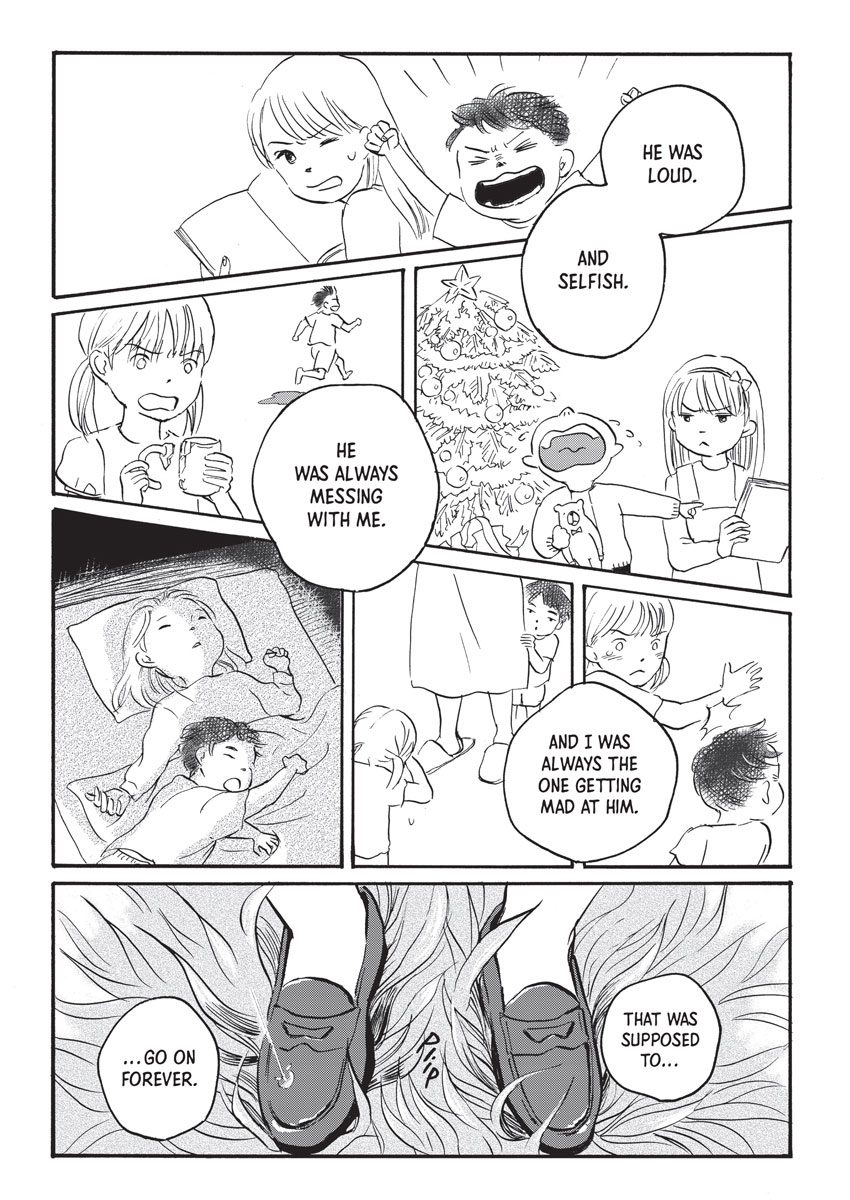
Thanks to TCAF going digital I’ve read the Popocomi East Asian zine gallery scene anthologies from POPOTAME. DENPA put out panpanya’s Guaybano Holiday, which was solemn and surreal in a way I’d experienced reading Drawn and Quarterly. But what I wanted was a Koyama Press book. A rare thing, to tap into both the bare essence of the zine, and the fantasized inner darkness explored in speculative fiction. Why did Shirley Jackson write horror? I found that in Kusahara Umi.
Glacier Bay calls Mothers josei, making a distinction of complexity in content similar to how people use the Vertigo imprint to describe challenging genre work. A ranking (sometimes rankling) perspective mirrored in the implication that one matures from comics to graphic novels (nope). Or the illusory quality line between YA and books for adults.
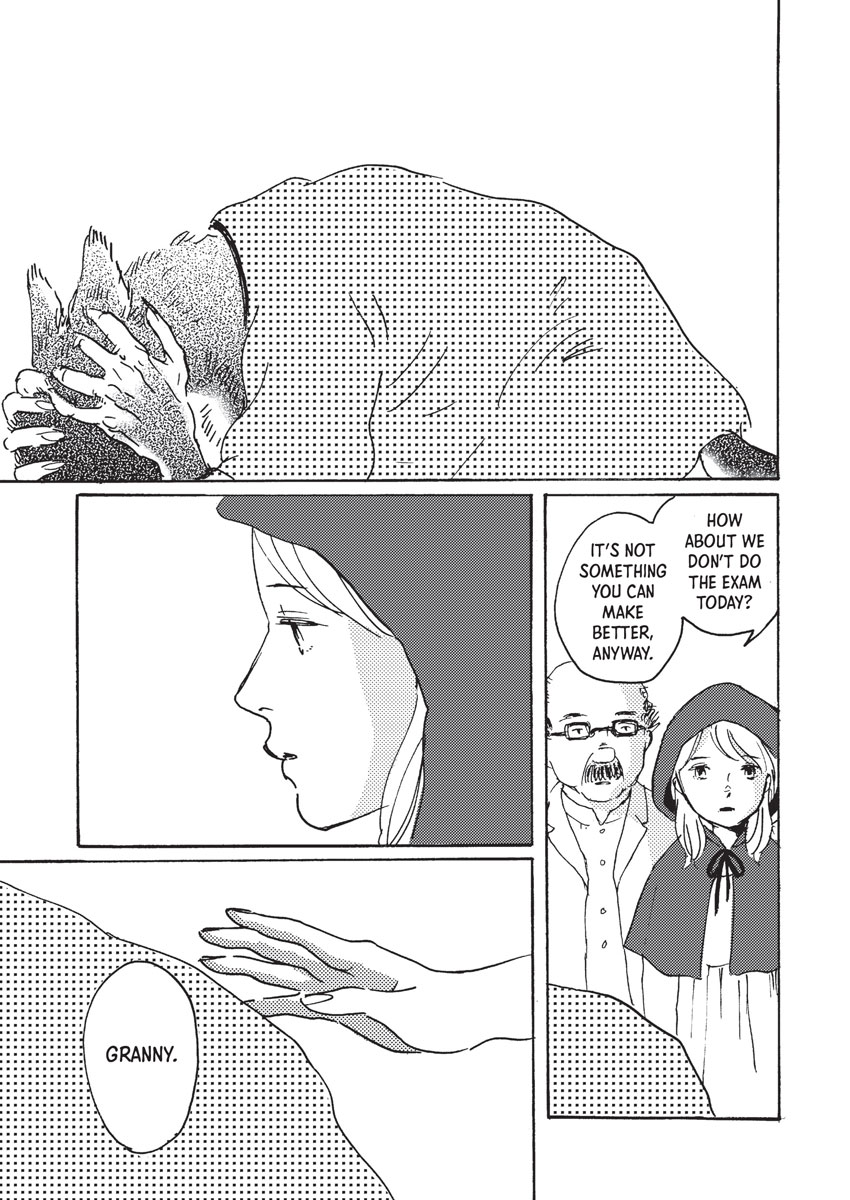
I like calling Mothers josei because the category was established in recognition of growth within the reader, a maturation that the medium reflects.
If josei is comics elevated, the conflation with zines and micro-press suits me fine. Umi’s comics channel that same energy of Bark Bark Girl or Young Frances, stories about self-discovery and suffering that push narrative boundaries. But in addition to the Artist’s-Alley-acquisition visual and emotional feel, it resonates with manga’s aesthetic (and historic) influences. There’s a vintage Last Unicorn look, Topcraft’s retro influence as well as Studio Ghibli’s. Romance comics and horror are the stuff of josei. Umi does both, frequently Mary Shelley commingling the two- but with the filmic brevity of comics.
When a man sees his mother everywhere, everything he looks at transforms. A mountain has stood for millennia and its crags are her face. When I’m talking about fantastic perspective, I mean that Umi captures the face you see when you look at the moon. Zoom in on the galaxy reflected in an eye. In the next beat the cosmos is projected all around and it makes sense. She disappears when this happens, of course, and the following panel there’s nothing’s left but bare bear. The shift in silence between the two wordless panels is tremendous. At the same time, there was no change, nothing happened. Magic.
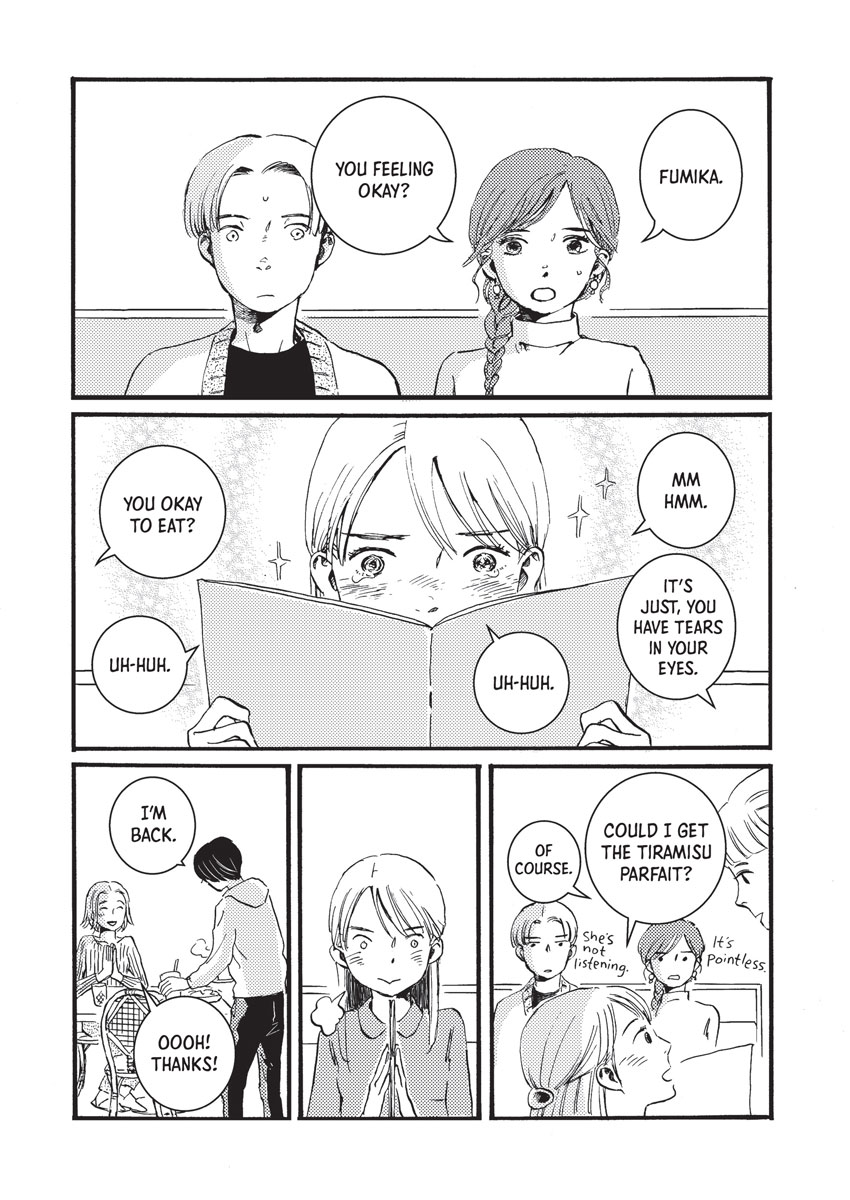
Umi explores the darkness in ruptured families. Motherhood as chains, the familial bond forcing us to connect to stuff we can’t stand or sometimes even handle. The grind of personal responsibility in an unfair world. We see from the perspective of someone living on the imaginary side of cognitive dissonance, and when an emotional break aligns their experience with reality, they undergo a wave of crippling guilt. Emotional self-destruction as an act of acquiescence.
Mothers is a broad range of subtle stories. Full of magic and symbolism, metaphors solid as concrete that wink in and out of existence like sunset through trees. Zine stories that are gentle and, though the aesthetic has none of the rough and tumble one associates with the overlap zines have with punk, it still shares boldly from the self. The raw power of explosive closeness.
Mothers will go to print in April of 2023, with orders available through Glacier Bay Books, and on discerning manga and comics bookshop shelves later in the year.


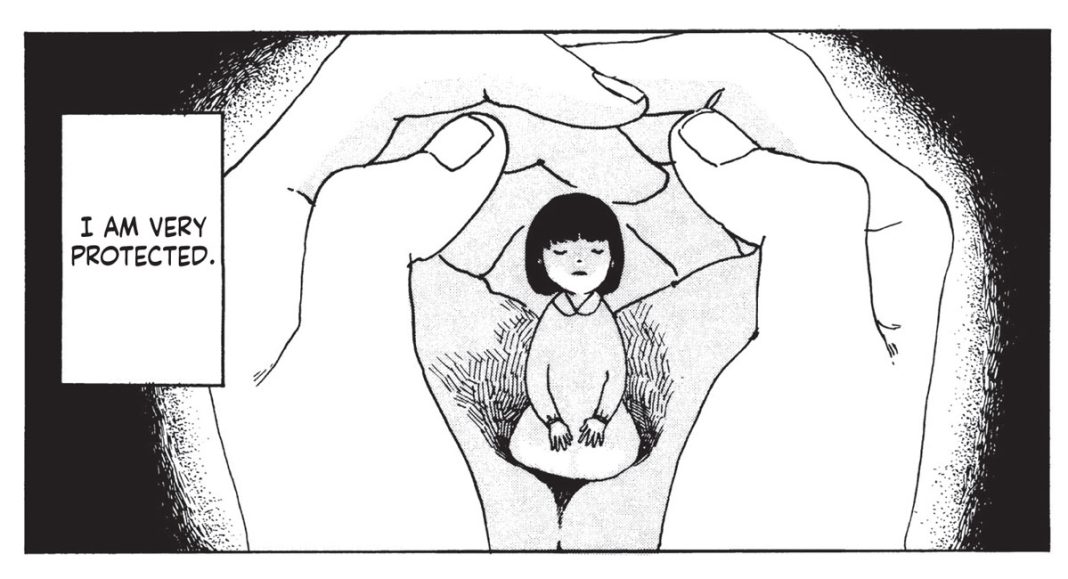
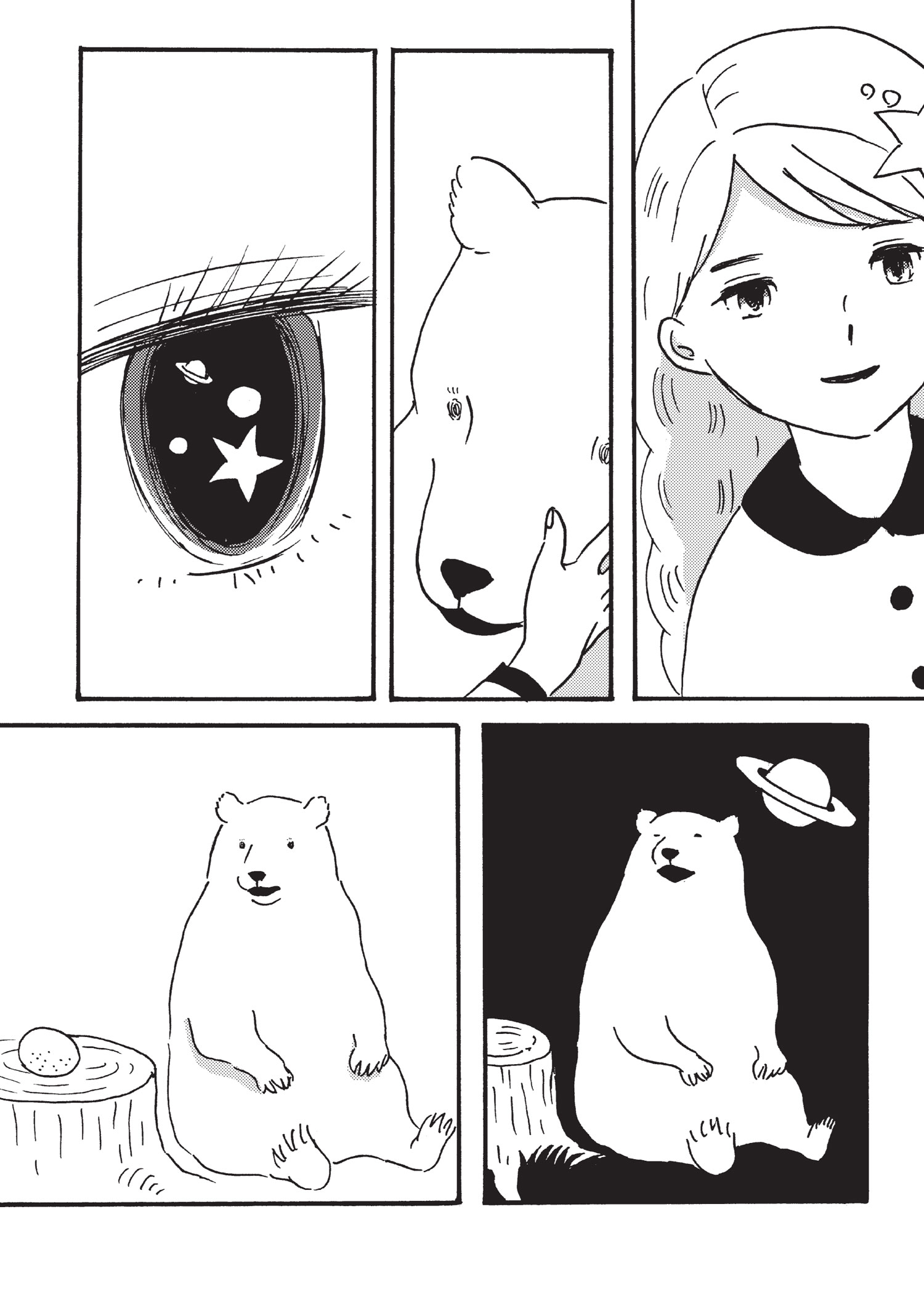
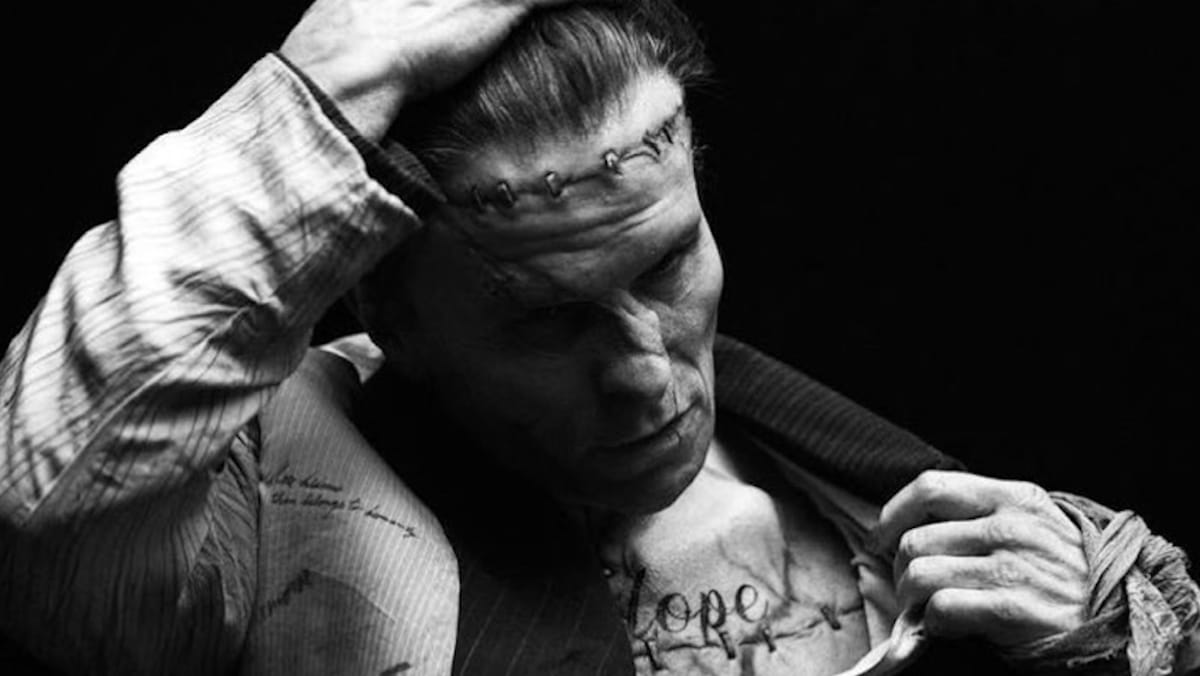
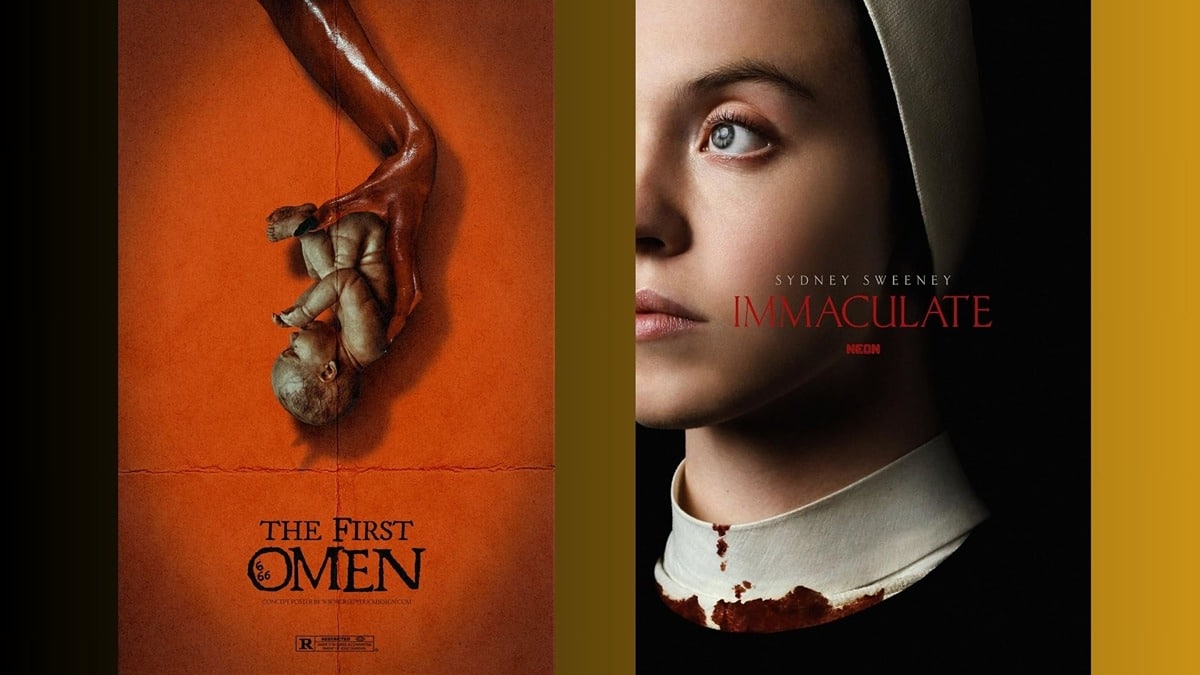
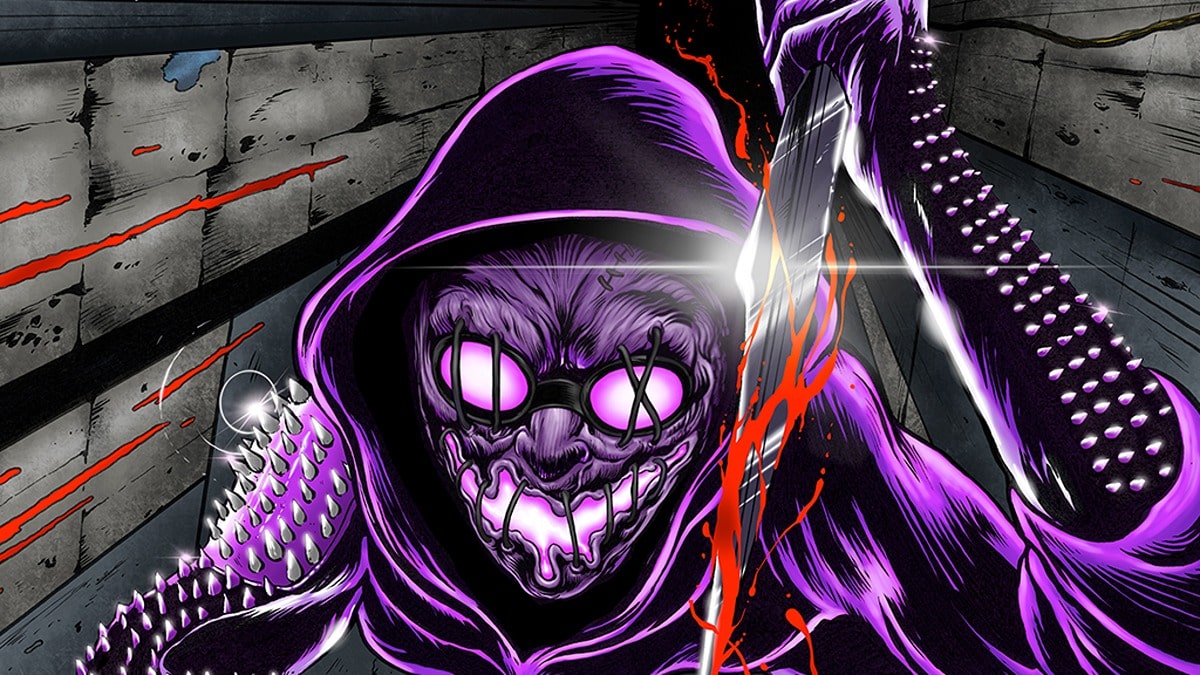


Thank you for sharing a very meaningful article, I think it will be very helpful for me and everyone.
Comments are closed.